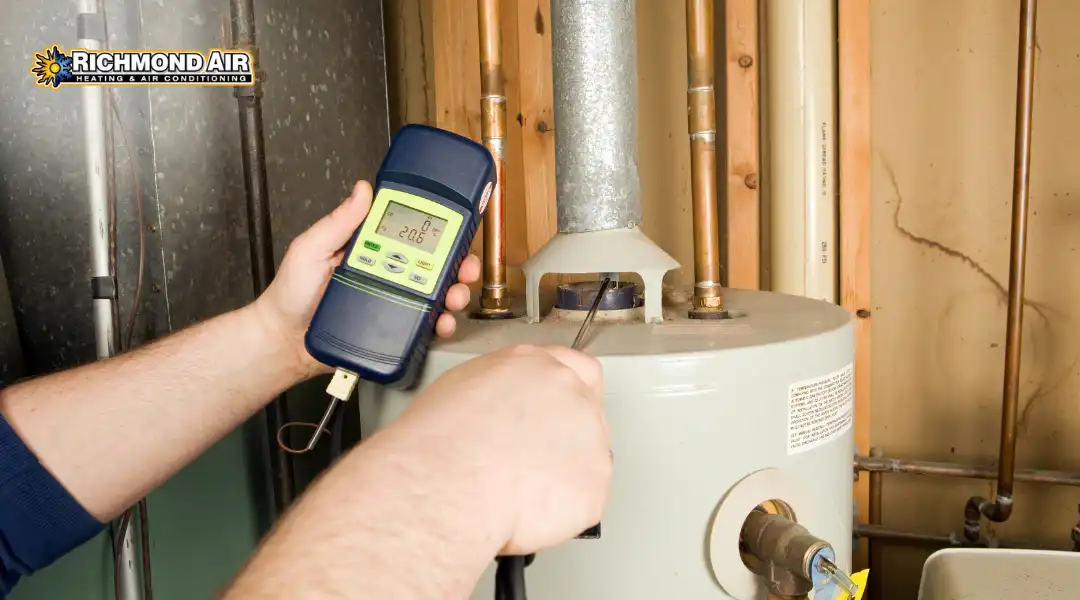Draining a water heater might seem like a daunting task, but it’s easier than you think when broken down into simple steps. Regular maintenance, like draining your water heater, helps ensure it works efficiently and lasts longer. If your heater has been acting up or if you just want to keep things running smoothly, learning how to drain a water heater is essential. This guide walks you through the process in a friendly, easy-to-follow manner so that even first-timers can feel confident.
Why Draining Your Water Heater is Important
Water heaters collect sediment over time, which can reduce efficiency and increase energy costs. By draining your heater regularly, you:
- Improve energy efficiency.
- Extend the lifespan of your heater.
- Ensure consistent water temperature.
Experts recommend draining your water heater at least once a year. Now, let’s dive into the step-by-step process.
Tools You’ll Need
Before starting, gather these tools to make the process smooth and safe:
- A garden hose.
- A flathead screwdriver or a bucket.
- Protective gloves.
- A towel or mop for any spills.
Step-by-Step Guide on How to Drain a Water Heater
Turn Off the Power Supply
For electric water heaters:
- Locate the breaker box and switch off the power.
For gas water heaters:
- Turn the thermostat knob to the “pilot” setting.
This ensures your safety and prevents damage to the heating element.
Shut Off the Water Supply
Locate the cold water valve at the top of your water heater and turn it off. This prevents additional water from entering the tank during the process.
Attach a Hose to the Drain Valve
Find the drain valve near the bottom of your heater. Securely attach a garden hose to it, making sure the other end is in a safe draining area (like a floor drain or an outdoor space).
Open a Hot Water Faucet
Turn on a hot water faucet in your home. This relieves pressure inside the tank and allows the water to flow out smoothly.
Drain the Water
Open the drain valve using a screwdriver or by hand. Let the water and sediment flow out through the hose. Be careful, as the water will be hot.
Flush the Tank
Once the tank is empty, turn on the cold water supply for a few minutes to rinse out any remaining sediment. Repeat this until the water runs clear.
Close Everything Up
- Turn off the drain valve and remove the hose.
- Close the hot water faucet you opened earlier.
Restore Power and Water Supply
- Turn the cold water valve back on to fill the tank.
- For electric heaters, switch the breaker back on.
- For gas heaters, set the thermostat to the desired temperature.
Signs Your Water Heater Needs Draining

If you notice these signs, it’s time to drain your water heater:
- Unusual noises, like rumbling or popping.
- Fluctuating water temperature.
- Reduced hot water availability.
- Higher energy bills.
How Often Should You Drain a Water Heater?
Draining your water heater once a year is a good rule of thumb. However, if you have hard water, you might need to do this more frequently due to faster sediment buildup.
Looking for expert water heater services in Richmond? Whether you need installation, repairs, or maintenance, we’ve got you covered. Contact us today for fast, reliable service
Final Thoughts
Learning how to drain a water heater is a simple yet important task that keeps your appliance running smoothly. With just a bit of effort, you can save on energy bills, prevent costly repairs, and ensure a steady supply of hot water. Regular maintenance is key, and this guide makes it easy to get started.
If you encounter any issues during the process, consult a professional to keep your water heater in top shape.
FAQs
Why is draining a water heater necessary?
Draining your water heater removes sediment that affects its efficiency. It also helps your heater last longer and run better.
How long does it take to drain a water heater?
Draining a water heater typically takes 30–45 minutes, depending on its size and the amount of sediment buildup.
Can I drain the water heater myself, or should I call a professional?
You can do it yourself with the right steps, but if you’re unsure, hiring a professional ensures safety and proper handling.
What happens if I don’t drain my water heater?
Neglecting to drain your heater can reduce efficiency, increase energy costs, and potentially cause tank damage over time.
How can I reduce sediment buildup in my water heater?
Regularly draining your water heater is the best way to minimize sediment buildup and maintain its performance.


